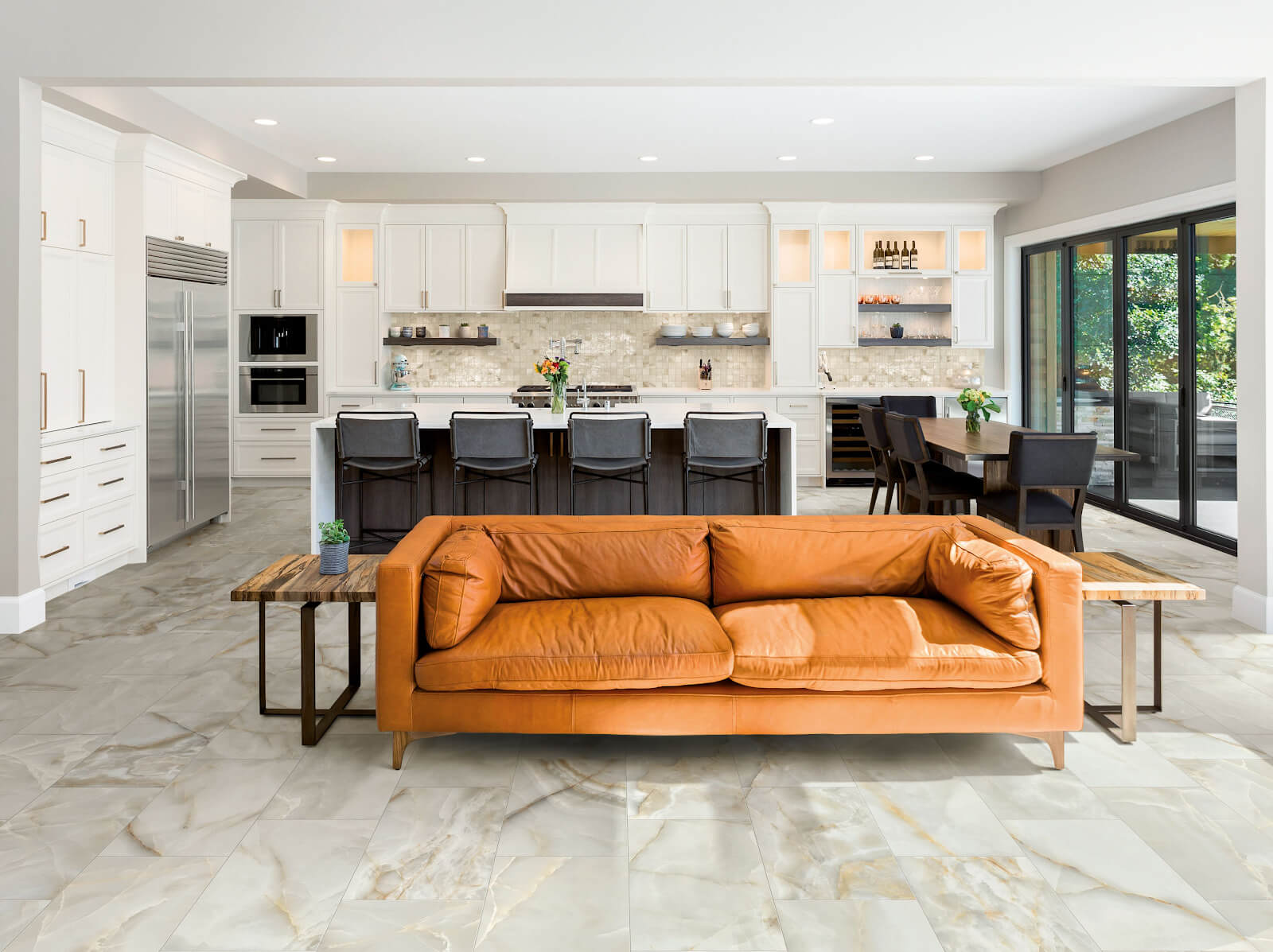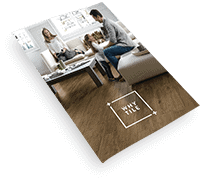When it comes to beautiful materials for your home, stylish looks may often come with the price of high-maintenance care, but that doesn’t have to be the case. As with all ceramic tile, porcelain tile’s limitless design possibilities are matched by performance and functionality, including the following low-maintenance, cost-saving benefits.
Dirt & Allergen Resistance
Ceramic surfaces, such as porcelain, do not harbor dirt, dust mites, pollen, bacteria, fungi, mold, or other irritants like some other flooring types. Instead, these allergens can be merely swept or wiped away.
Having surfaces clear of allergens helps prevent them from circulating in the air and contributing to poor indoor air quality — important for any home, but especially so for allergy sufferers!
[Related: How Dirty Are Your Carpets? A Robot Baby Reveals the Ugly Truth]
Resistance to Bacteria & Microbe Growth
Bacteria and fungi need to feed on an organic substance in order to grow. All ceramic tile, including porcelain, is inorganic and naturally resists the growth of bacteria. Some options have antimicrobial properties, which can suppress and even destroy harmful microorganisms, such as mold, fungi, bacteria, and viruses.
Since mold and mildew growth may cause headaches, allergic reactions, and other health issues, keeping your home free of these irritants is important. And of course, bacteria resistance is the best first step to a healthy environment!
Water Resistance
Ceramic tile (including porcelain) is unaffected by moisture, which makes ceramic surfaces a great choice for moisture-prone applications such as kitchens, bathrooms, showers, backsplashes, countertops, swimming pools, and other outdoor spaces.
[Related: Post-Pandemic Dream Kitchen Guide]
Stain Resistance
When simmering spaghetti sauce splashes on your kitchen backsplash, the cat knocks your coffee cup onto the floor, or a bottle of wine drips on your counter, you can generally clean up the mess with water alone and no worries about permanent discoloration.
Fade Resistance
Have you ever decided to rearrange your furniture, only to find that the newly exposed floor space is darker in color than the rest of your flooring? Color-leaching UV rays from the sun can fade some flooring materials such as certain kinds of hardwood and vinyl products, leaving your redecorated space lacking luster (literally).
Ceramic surfaces, however, have the color baked directly into the tile’s clay body (for unglazed tile) or its glazed surface (for glazed tile), making it “color permanent.” The result: ceramic surfaces don’t fade from the sun, even if exposed to direct sunlight.
Pro tip: Love the look of hardwood but afraid of it fading from the sun? Opt for wood-look tile instead and have the best of both worlds.
[Related: 2020 Tile Trends: Refined Natural Wood Looks]
Scratch Resistance
No need to be extra cautious to protect your porcelain, and you also needn’t worry about the dirt that can accumulate in scratches and dents such as with other nonceramic surface materials. Tile’s hard-fired surface is incredibly durable, making it resistant to scratches, scrapes, scuffs, dents, chips, and cuts (we could go on, but you get the point) — even after years of heavy use.
Easy Cleaning
Bacteria resistance, stain resistance, and scratch resistance make cleaning a breeze. You can clean up most messes by merely sweeping and wiping with water. Need a little extra cleaning power? Look for a neutral cleaner made specifically for tile and grout or a mildly alkaline detergent such as Mr. Clean or Spic and Span.
Download our tile cleaning tips to have handy!
With all of these low-maintenance benefits, it’s no wonder that ceramic tile (including porcelain) has one of the lowest life cycle costs of any flooring. Performance that saves you money and time while also looking flawless — that’s why tile!




